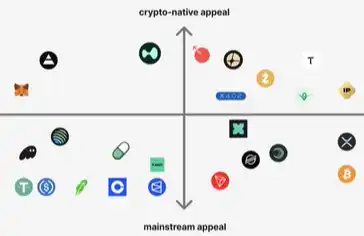The Strategic Implications of Corporate Bitcoin Holdings: A Case Study of RSXYZ's 3,333 BTC Acquisition Plan by 2028
- Thailand’s RSXYZ plans to buy 3,333 BTC by 2028 via a $5.8M share issuance, signaling institutional adoption of Bitcoin. - The company uses dollar-cost averaging to mitigate Bitcoin’s volatility, treating it as a long-term store of value. - Growing corporate BTC holdings could stabilize prices and drive regulatory clarity, reshaping Bitcoin’s role in institutional portfolios. - RSXYZ’s move may catalyze adoption in Southeast Asia, where crypto integration lags, boosting regional corporate BTC allocations
In the ever-evolving landscape of institutional finance, the line between traditional assets and digital innovation is blurring. Thailand's RSXYZ, a publicly listed company, has emerged as a pivotal player in this transformation with its ambitious plan to acquire 3,333 Bitcoin (BTC) by 2028. This $5.8 million initiative, funded through a share issuance, underscores a strategic shift toward integrating cryptocurrencies into corporate treasuries. For investors, the move raises critical questions: How does institutional adoption reshape Bitcoin's value proposition? What does it mean for portfolio diversification in an era of macroeconomic uncertainty?
The RSXYZ Playbook: Dollar-Cost Averaging and Risk Mitigation
RSXYZ's approach is methodical. By committing to a three-year acquisition period using dollar-cost averaging (DCA), the company aims to neutralize Bitcoin's notorious volatility. DCA, a strategy long favored by institutional investors in equities, ensures that price fluctuations are averaged out over time. This disciplined entry into the crypto market not only reduces short-term risk but also signals a long-term commitment to Bitcoin as a store of value.
As of August 2025, RSXYZ already holds 50 BTC, a modest but symbolic foothold. The company's rationale is clear: Bitcoin is increasingly seen as a hedge against inflation and currency devaluation, particularly in emerging markets like Southeast Asia, where central banks are grappling with rising interest rates and geopolitical tensions. By allocating a portion of its treasury to BTC, RSXYZ is positioning itself to benefit from potential capital appreciation while insulating its balance sheet from fiat currency risks.
Institutional Adoption: A Catalyst for Bitcoin's Legitimacy
RSXYZ's move is part of a broader trend. Companies such as MicroStrategy and Tesla have already staked their claims in Bitcoin, but RSXYZ's significance lies in its regional context. Thailand, a key economic hub in ASEAN, has historically lagged behind in crypto adoption compared to its neighbors. By embracing Bitcoin, RSXYZ could catalyze a domino effect, encouraging other Thai and Southeast Asian firms to follow suit.
The implications for Bitcoin's value proposition are profound. Institutional adoption transforms Bitcoin from a speculative asset into a recognized component of diversified portfolios. This shift is not merely symbolic; it alters market dynamics. As more corporations allocate capital to BTC, demand increases, potentially stabilizing its price and reducing volatility. Moreover, the inclusion of Bitcoin in corporate treasuries could spur regulatory clarity, further legitimizing its role in institutional finance.
Portfolio Diversification in a Fragmented World
For investors, the RSXYZ case study highlights the growing importance of diversification. Traditional asset classes—equities, bonds, and real estate—are increasingly correlated in a world of synchronized monetary policies and global shocks. Bitcoin, with its decentralized nature and limited supply, offers a unique uncorrelated return stream.
Consider the numbers: Bitcoin's annualized volatility has decreased by 20% over the past three years, even as its market capitalization has grown to over $1 trillion. This trend aligns with the growing participation of institutional investors, who bring liquidity and risk management expertise to the table. RSXYZ's DCA strategy exemplifies how volatility can be mitigated through structured, long-term planning.
However, diversification is not a panacea. Bitcoin's price remains susceptible to regulatory shifts, macroeconomic cycles, and technological risks. Investors must weigh these factors against the potential rewards. For RSXYZ, the key lies in balancing its BTC allocation with traditional assets, ensuring that its treasury remains resilient across market cycles.
The Road Ahead: Challenges and Opportunities
While RSXYZ's strategy is prudent, it is not without challenges. Regulatory uncertainty remains a wildcard. Thailand's Securities and Exchange Commission (SEC) has yet to issue a comprehensive framework for corporate crypto holdings, leaving room for ambiguity. Additionally, Bitcoin's energy consumption and environmental impact could attract scrutiny, particularly as ESG (Environmental, Social, and Governance) investing gains traction.
Yet, these challenges also present opportunities. RSXYZ could leverage its BTC holdings to explore green energy partnerships or carbon offset initiatives, aligning its crypto strategy with sustainability goals. Such moves would resonate with a new generation of investors who prioritize both financial returns and ethical impact.
Investment Advice: A Calculated Bet
For investors considering Bitcoin as part of their portfolios, RSXYZ's approach offers a blueprint. Start small, use DCA to mitigate volatility, and treat Bitcoin as a long-term strategic asset rather than a speculative trade. Allocate no more than 5–10% of a diversified portfolio to BTC, and monitor regulatory developments closely.
Moreover, investors should keep an eye on regional trends. If RSXYZ's initiative sparks a wave of corporate adoption in Southeast Asia, Bitcoin's price could see a structural upward shift. This is not a prediction but a plausible scenario given the region's growing economic influence and the increasing acceptance of digital assets.
Conclusion: A New Era of Institutional Finance
RSXYZ's 3,333 BTC acquisition plan is more than a corporate maneuver—it is a harbinger of a new era in institutional finance. By embracing Bitcoin, the company is not only diversifying its treasury but also contributing to the normalization of digital assets in traditional markets. For investors, the lesson is clear: the future of finance is hybrid, blending the old with the new. Those who adapt early—like RSXYZ—stand to reap the greatest rewards.
As the world watches Thailand's corporate sector navigate this transition, one thing is certain: Bitcoin's journey from fringe asset to institutional staple is far from over. The next chapter, written by companies like RSXYZ, could redefine the very nature of value in the 21st century.
Disclaimer: The content of this article solely reflects the author's opinion and does not represent the platform in any capacity. This article is not intended to serve as a reference for making investment decisions.
You may also like
What drives the price surge of cryptocurrencies with no revenue?

Is this week’s crypto news a “trick or treat” week?
This week's top cryptocurrency headlines include Solana's new stablecoin, Microsoft's investment in OpenAI, Nvidia's investment in Nokia, and the Federal Reserve's interest rate cut decision. Is the market "trick or treat" or "treat"?
SharpLink plans $200M Ethereum deployment with Linea partnership

Price predictions 10/27: SPX, DXY, BTC, ETH, BNB, XRP, SOL, DOGE, ADA, HYPE